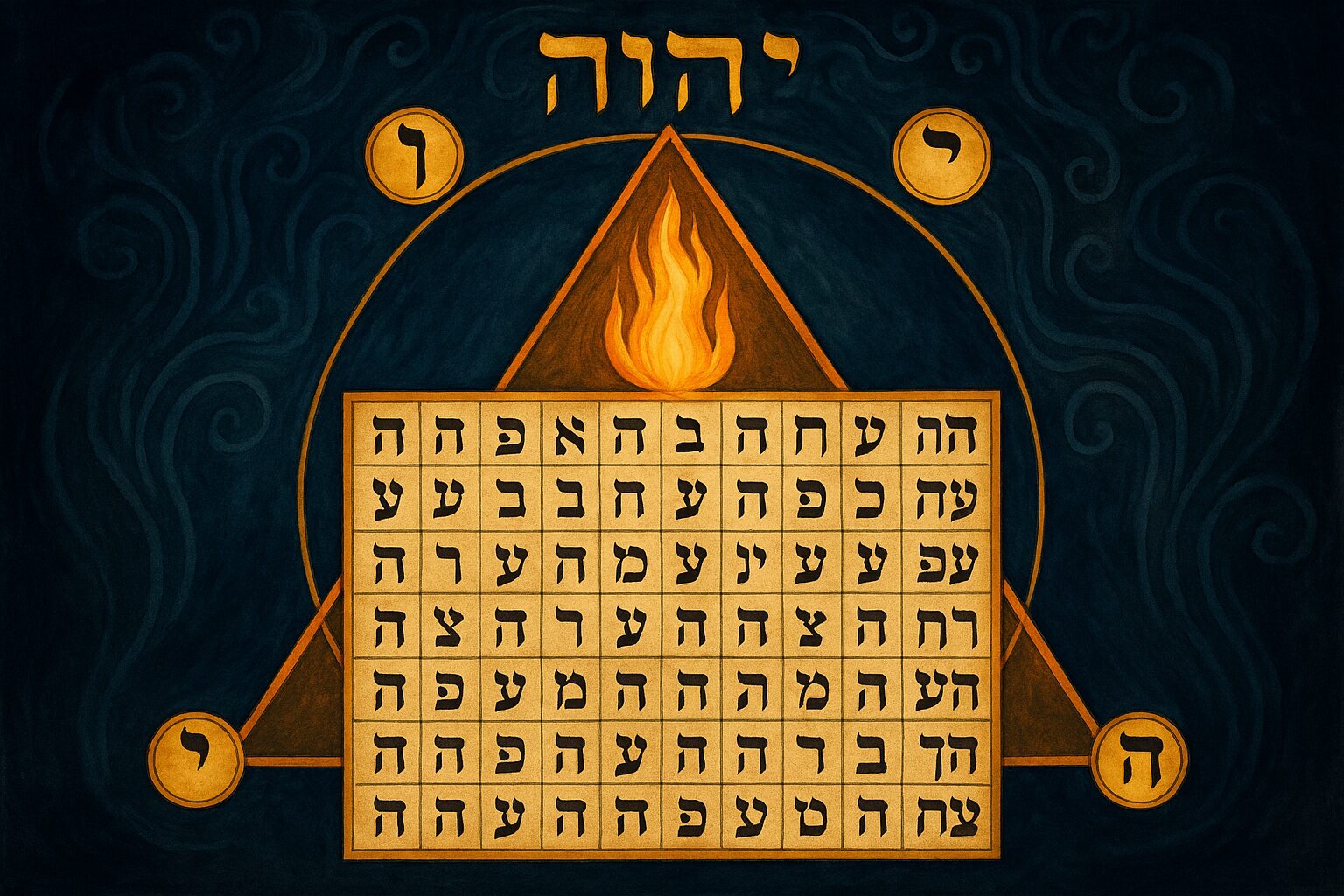Introduction
In the mystical tradition of Kabbalah, divine names are not just symbolic but powerful keys to unlocking hidden spiritual truths. Among the most revered are the 72 Names of God, derived from the Book of Exodus. These names represent a blend of Hebrew letters that serve as conduits to higher spiritual realms. This article explores the occult use of these names, their origins, meanings, and their role in spiritual enlightenment.
The Origins of the 72 Names of God
The 72 Names of God are drawn from three verses in the Book of Exodus (Exodus 14:19-21), describing the miraculous parting of the Red Sea. Each verse contains 72 letters, and when combined in a specific manner, they form these sacred names.
The process of formation involves a method known as the “threefold permutation”:
- The first letter of the first verse
- The last letter of the second verse
- The middle letter of the third verse
This combination creates unique names representing different divine aspects, often connected to angelic forces.
In Kabbalistic thought, these names hold the essence of divine creation, allowing practitioners to connect directly with the Divine Source. As the Zohar, a central Kabbalistic text, states:
“Through these Names, the soul ascends to its source, to the ultimate Divine Light, as the light of the stars rises and shines from the firmament.”
The Mystical and Occult Significance of the 72 Names
The 72 Names of God are considered living entities, each vibrating at a frequency that resonates with different aspects of the universe. They are not just symbols, but sacred vibrations that represent facets of divine energy.
As the Zohar reveals:
“The letters are the vessels that contain the divine light. When they are spoken, they open the gates to the infinite.”
These divine names act as vessels channeling spiritual energy into the material world, manifesting divine will.
Key Aspects of the 72 Names:
- Healing: Some Names are linked with healing and restoration.
- Protection: Others offer spiritual or physical protection.
- Wisdom & Prosperity: Some Names bring wisdom, while others attract prosperity.
Through meditation, prayer, or ritual, practitioners can invoke these Names to align themselves with divine energies.
The Role of the 72 Names in Kabbalistic Meditation
Meditation with the 72 Names of God is central in Kabbalistic practice. By focusing on each Name, practitioners aim to elevate their consciousness and approach the divine. These names are keys unlocking higher levels of spiritual understanding.
Meditation techniques:
- Visualization: Practitioners visualize the Hebrew letters, internalizing their divine vibrations.
- Hitbonenut: This practice attunes the mind and spirit to the divine light by contemplating the Names.
Rabbi Isaac Luria’s Teachings:
Rabbi Luria, a pivotal Kabbalist, viewed the 72 Names as “sparks of divine light”. When activated, these sparks illuminate the soul and facilitate spiritual awakening. These Names guide practitioners in the mystical union with the Divine Source.
The 72 Names and the Divine Will
In Kabbalistic mysticism, God’s will governs all creation. The 72 Names are seen as the ultimate expression of God’s will. Meditating on them allows the practitioner to align with this divine will, which is essential for spiritual enlightenment.
One of the core practices in Kabbalah is the Tikkun (spiritual repair), which aims to heal the soul’s fragmentation. The 72 Names serve as instruments to restore this balance, elevating the soul closer to God.
As the Zohar teaches:
“The Name is the key to the gates of heaven. When the Name is spoken with purity of heart, the gates open, and the divine light flows freely.”
This concept ties the Names to the idea of mystical ascent, where the soul rises through various levels of consciousness to unite with the Divine.
Conclusion
The 72 Names of God in Kabbalistic mysticism offer a profound tool for spiritual awakening and divine understanding. Through meditation and invocation, these Names connect the practitioner to higher realms of consciousness, allowing them to transcend the material world and align with the divine flow of creation.
In the words of the Zohar:
“Through these Names, the soul ascends to its source, to the ultimate Divine Light.”
By using these sacred Names, the initiate embarks on a transformative journey, leading to spiritual transformation, self-realization, and union with the Divine.
